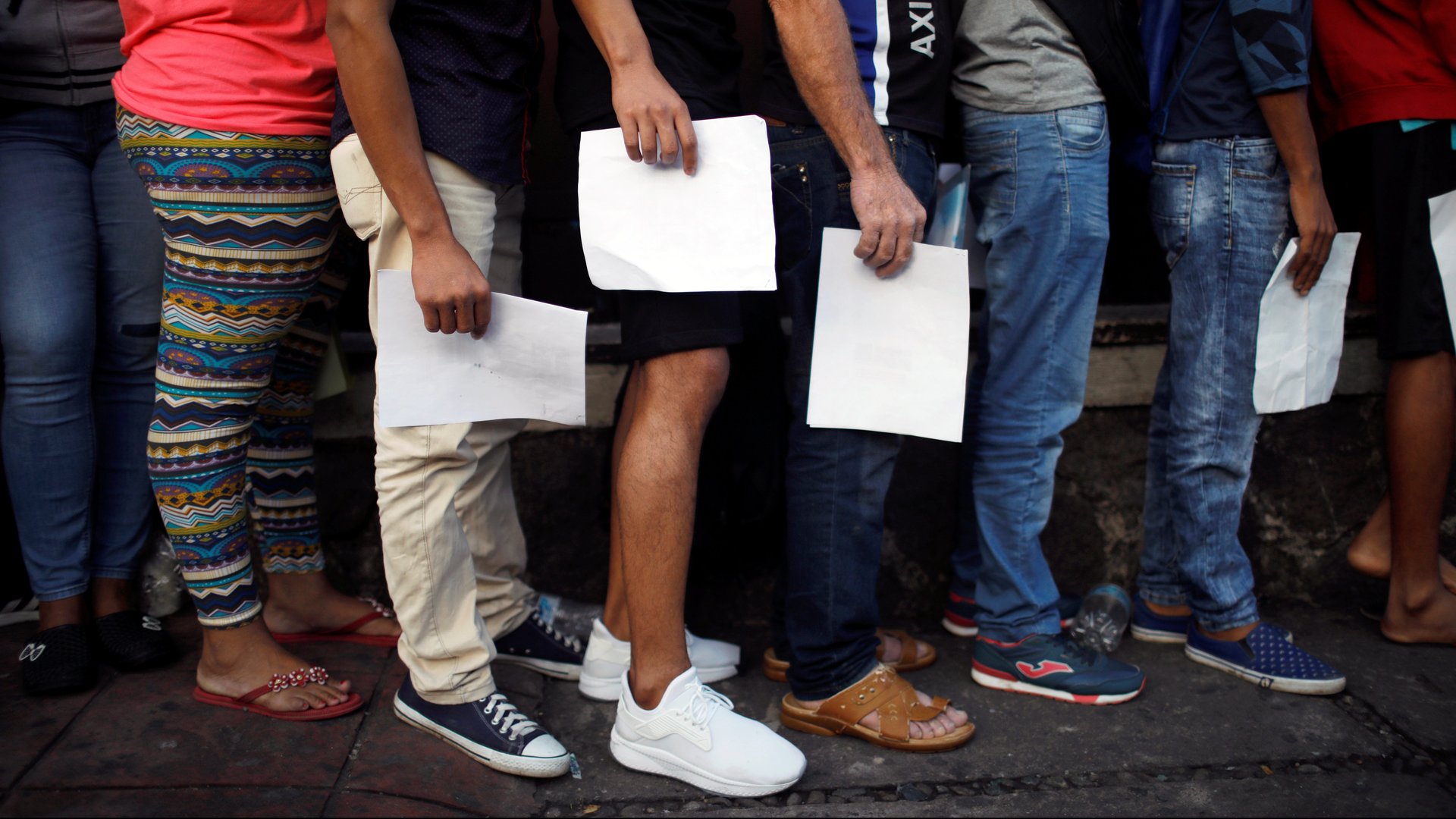The UN’s latest report on refugees has one tiny bit of good news
There’s much to worry about reading the UN’s latest report on the state of the world’s refugees, released today.


There’s much to worry about reading the UN’s latest report on the state of the world’s refugees, released today.
The number of people who have been forcibly displaced from their homes by conflict and persecution increased in 2018 for the seventh year in a row, to a record 70.8 million. That number includes refugees, asylum seekers, and people who are stateless or have been internally displaced within their own countries.
The UN’s refugee agency, UNHCR, provided care for approximately 20.4 million refugees last year (a separate UN body cares for an additional 5.5 million refugees in Palestine). Most were trying to escape conflict and persecution in Africa, the Middle East, and Asia, but new crises in countries like Venezuela are creating new refugee hubs.
The report estimated that 3.4 million Venezuelans were displaced last year. “The broader movement of Venezuelans across the region and beyond increasingly took on the characteristics of a refugee situation,” the report states.
Despite the clear signs of an intensification in the number of people being displaced by conflict globally, the report has a tiny bit of good news: The rise in the number of refugees under UNHCR’s care slowed down slightly in 2018, increasing by just 2%, the lowest pace since 2013.
The agency says the strongest acceleration in the refugee population happened between 2012 and 2015, due to the war in Syria. It doesn’t say much more about the slowdown, probably because the number could soon start growing fast again. The report warns that since the relative drop in the movement of people from Syria, conflicts and crises in countries like Yemen and Myanmar have emerged to replace that flow.
While the growth in refugees may have slowed slightly, the total number of forcibly displaced people has almost doubled in just seven years. It’s a crisis which rich countries continue to do little to curb.
Developed nations welcomed an incredibly small number of displaced people in 2018, the report notes, and currently host only two in 10 of the world’s refugees. Developing countries, including Turkey, Pakistan, Uganda, and Sudan continue to “shoulder a disproportionately large responsibility for hosting refugees,” the report states.
One exception is Germany, the fifth country with the largest refugee population in the world.
The US, for a long time one of the most welcoming countries for displaced people in the world (despite having started many of the wars that caused their displacement in the first place), has in recent years slashed the number of refugees it’s willing to admit.
It agreed to take in a maximum of 45,000 refugees in 2018, down from 110,000 in 2017 (it ultimately took in far less). This year it has set its quota at just 30,000.